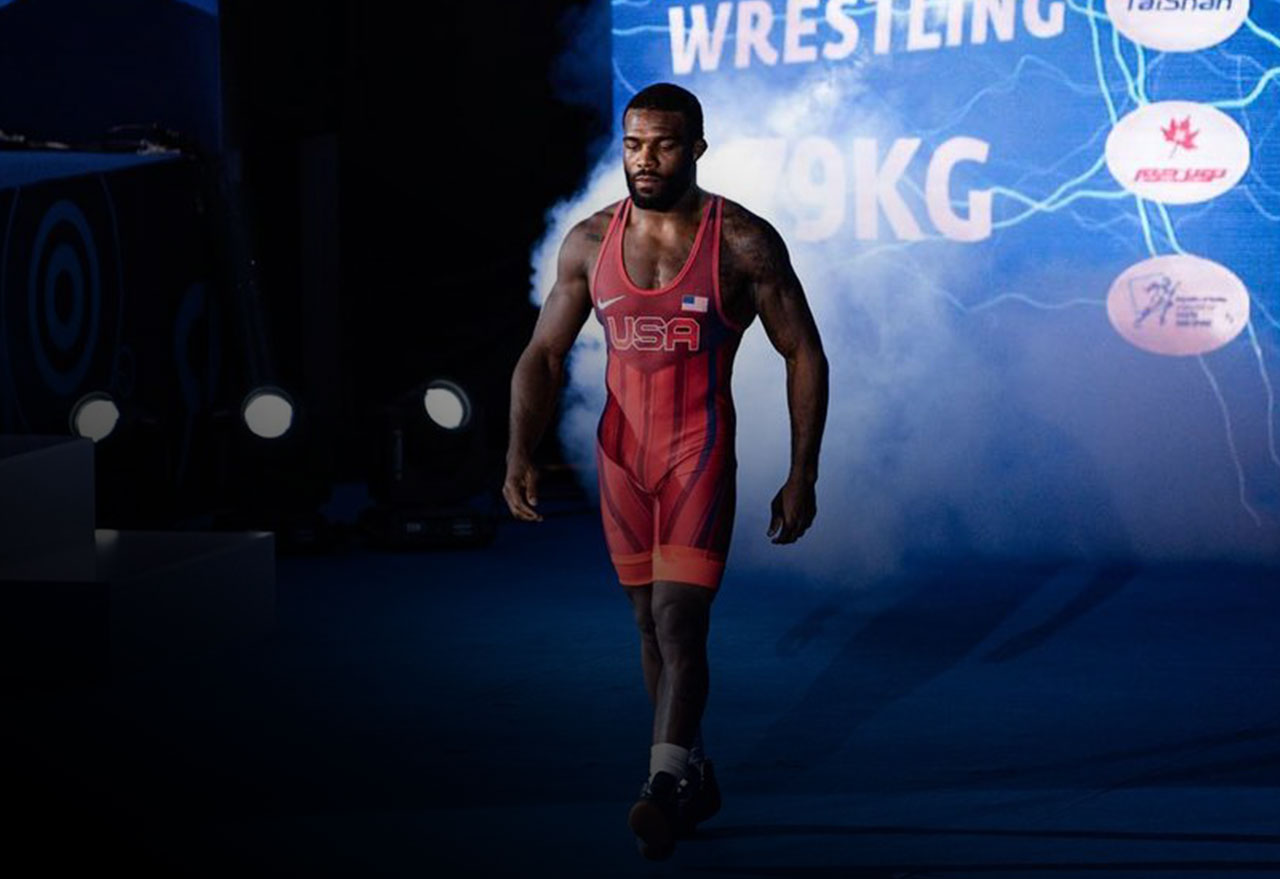Blog
College Wrestling: Tips to prepare you for the next level.
Are you prepared?
So you think you have what it takes to wrestle in college? Chances are if you’re between the ages of 13 and 17, you’ve already started to think about the next level of competition. The question will be -- Are you be prepared if a coach calls you with an offer? If you’re not, don’t sweat it. I’ve comprised a list of pointers for high school athletes to get you dialed-in and prepared for the future. Start these immediately in order to get yourself ready to attend your favorite school and compete in the NCAA.
Academic Success
Be as competitive in the classroom as you are in the wrestling room. Extending your career will depend on it. In order to enroll and compete in college, you’ll have to first be accepted into your desired university, as well as receive clearance from the NCAA Clearinghouse. The NCAA Clearinghouse is an organization that evaluates the academic record of prospective student-athletes to determine whether they are eligible to participate at the Division I and II levels. It does this by reviewing the student-athlete's academic record, SAT or ACT scores, and amateur status to ensure conformity with NCAA rules. In other words, whether or not you’ll be recruited is dependent upon more than just your physical abilities. It’s always sad to see an amazing athlete with unsatisfactory grades who isn’t eligible to realize his or her dreams. Don’t get left behind and forced to stay home. Your grades shouldn’t be limiting your school choices. You can be a below average athlete with great grades and wrestle in college, but you can’t be a great athlete with below average grades. Start now. Your future depends on it.
Technical Skills
NCAA wrestling is tough. Almost everyone is the best wrestler from their town, high school, or state. If you hope to survive, you’ll have to do some preparing in advance. Here are a few things you can work on now to improve technically and develop yourself for the big leagues.
1. Get out from bottom
In College wrestling, you will be introduced to riding time. Riding time is defined as being in control on the mat for one minute more than your opponent. One point will be awarded at the end of regulation time. During close matches this can make you or break you. Be sure to work on how to get out of legs, avoid being lifted and mat returned, defending tight waist, and keeping your wrist free from tilts.
2. Setups to shots
As you arrive onto the collegiate level, you will notice that the neutral positioning of your opponents has improved dramatically. These guys are bigger, stronger and more disciplined. It will be difficult to shoot from the open and score often. Against solid competitors, you will need to get angles, control ties, and use motion to keep them off balance, and open them up for attacks. Start now by grabbing a drill partner and incorporating more motion and control of your opponent before firing off your shots.
3. Finishing takedowns.
In order to score in big matchups, you’ll have to learn to not only secure the leg, but once in, properly finish the takedown. Little things such as hand placement, head placement, and amount of pressure will all be the difference between the winning takedown and the lost takedown. Be sure to work on staying patient and proper positioning to maintain a high shot to finish ratio.
Tournaments
There are a number of tournaments each year that are well attended by collegiate coaches on the recruiting trail. Knowing this, America’s best amateur talent will be there too, so it will be tough. However, if you show up, compete, and do well, you may just be on your way to a college scholarship. Try to add a few of these to your schedule and throw yourself in the mix. It could be worth the investment. Some of these tournaments include Cadet and Junior Nationals in Fargo, Super 32, FloNationals, and Beast of the East.
Reach out to your favorite schools
Not all high school wrestlers are going to have coaches knocking on their doors with scholarship offers. Not to worry, most universities/colleges have team websites with basic information that you’ll need to get in contact with them. Typically there is access to questionnaires, email addresses and phone numbers of the coaching staff, and also an address to send your own information/credentials. If no one has reached out to you, feel free to reach out to them. It may be a good way to get noticed.
Nutrition
The weight classes will be narrowed down from 14 in high school, to ten in college. Unlike in high school when athletes tend to jump weight classes yearly, most NCAA wrestlers compete in the same class throughout their college career. With most collegiate wrestling rooms deep with talent, you will have to try to fit in accordingly, and that may include going down or bumping up. It’s a great time now to get a handle on proper nutrition. It will be very helpful at the next level where the physical demands increase tremendously. Take care of your body and it will take care of you.
Time Management
No more Mom and Dad! You will not only be responsible for creating your own schedule, but upholding it too. A typical day as a student-athlete could look like this:
7:00 am: Lift
8:30 am - 12:30 pm: Class
12:30 pm - 1:30 pm: Lunch
1:30 pm - 2:30 pm: Meetings
3:30 pm - 5:30 pm: Practice
6:00 pm - 6:30 pm: Dinner
6:30 pm - 8:30 pm Study Hall
Repeat the next day. That’s not including the rigors of travel if you’re good enough to make it into the varsity lineup. Don’t even get me started on 15-page papers! Begin to manage your time wisely. Get yourself an alarm clock. Start to wake up early and have breakfast before school. Spend your free time more efficiently -- studying, preparing for the following day, and spending your time and money wisely. Being able to balance between sports, school and social life will determine how successful you are in each.
Relationships
Take a look at the guys to the left and right of you inside the locker room. These guys are going to bleed, sweat, cry and go to battle alongside you. Now is the time to start establishing strong relationships with your teammates, because in college, these will be the men that become more than just training partners. They will become best men in weddings, godfather to future children, co-owners in businesses, and most importantly -- lifelong friends. Coaches will become mentors, teaching you more about life than about wrestling. Always do your best to communicate well with your teammates and coaches, and encourage those around you to reach greatness too. Exchange phone numbers with your teammates. Create team activities on the weekends. Now is a good time to talk to your partners outside of school and competitions. Meet with your coaches to discuss your goals, mentorship, and ways to get to the next level. Their help is essential.
Commitment
The minimum is no longer enough. As you arrive at the collegiate level, wrestling no longer becomes seasonal, it is year round and mandatory. It becomes less of a sport, and more of a lifestyle. Put away your surfboard and swim trunks, and grab your shorts and wrestling shoes. You’ll be committing your summers to training and perfecting your craft. This sport is highly competitive, and if you want to not only survive, but thrive, you’ll have to do the extra. Today is a great time to establish accountability in your life. Train on your own, outside of normally scheduled practice hours. Find a local club hosting practices during the offseason, attend camps, and travel the country to compete during the summer. The more you do, the more prepared you’ll be. Don’t wait. Start today!
-JB
‹ Back







